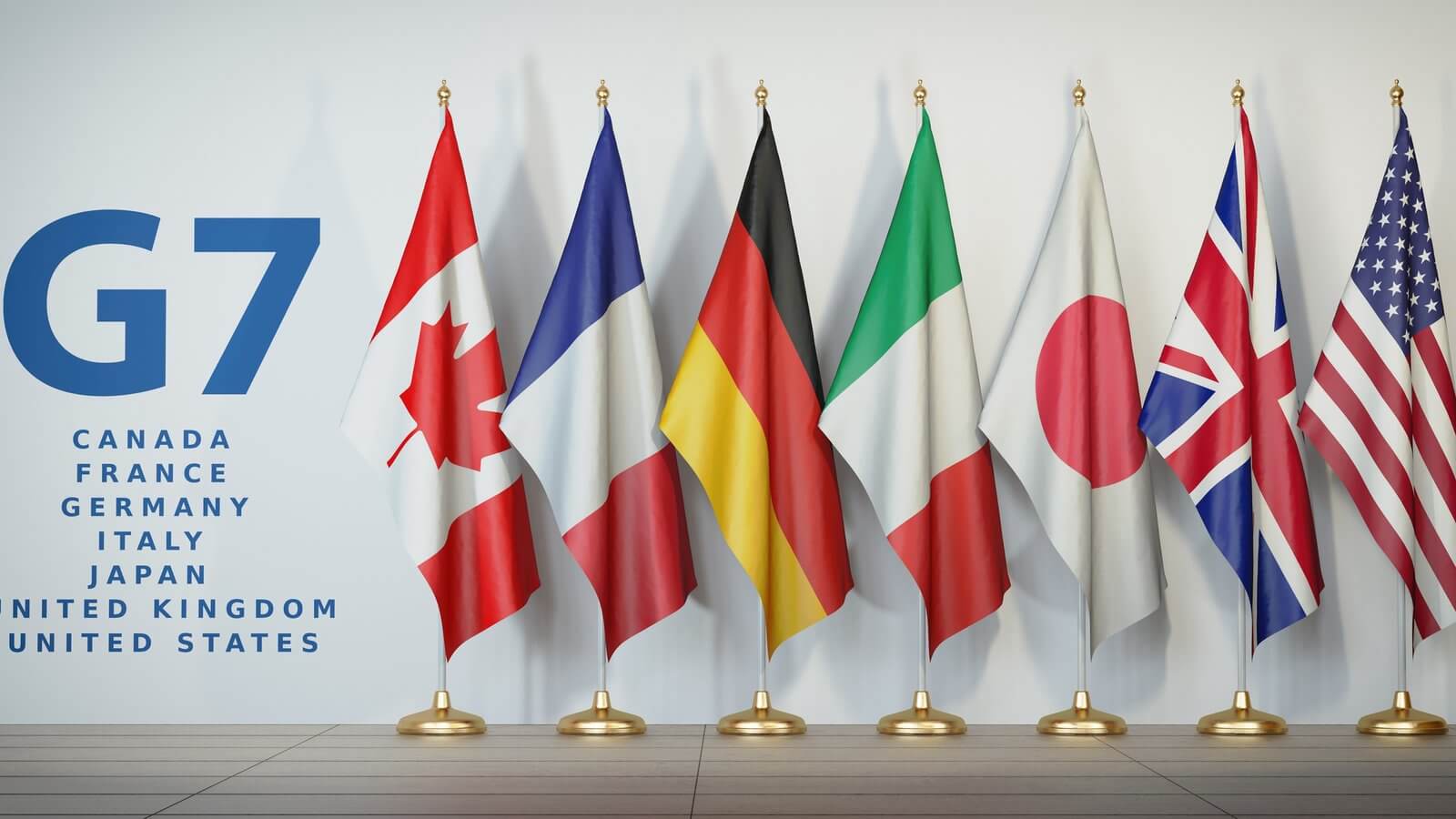The foreign ministers of the G7 nations—Canada, France, Germany, Italy, Japan, the United Kingdom (UK), and the United States (US), and European Union (EU) foreign policy chief Josep Borrell—and the North Atlantic Treaty Organization (NATO) met in separate meetings on Friday to discuss the continuing Russian aggression against Ukraine, which has entered its second week. Below is a summary of the two meetings.
G7 Foreign Ministers’ Meeting
According to an official press release, the foreign ministers of the G7 nations and Borrell reiterated their condemnation of Russia’s “unprovoked and unjustifiable” military actions against Ukraine, facilitated by the Belarusian government led by Alexander Lukashenko.
The leaders called on Russia to immediately halt its attack on Ukraine and withdraw its forces, noting its devastating impact on the civilian population and infrastructure. “With its further aggression, President [Vladimir] Putin has isolated Russia in the world, as evidenced by the overwhelming vote at the United Nations General Assembly condemning Russia’s aggression and calling upon it to withdraw its forces immediately,” the statement reads.
.@G7 Foreign Ministers: We will hold accountable those responsible for war crimes, including indiscriminate use of weapons against civilians & we welcome the ongoing work to investigate and gather evidence, including by the ICC. Link: https://t.co/TKWf6Wy713 #Ukraine #GERG7 pic.twitter.com/3rpCyW6pHq
— GermanForeignOffice (@GermanyDiplo) March 4, 2022
⚡️Ukraine’s Foreign Minister Dmytro Kuleba signed letters to all foreign ministers of EU and G7 countries with a specific list of the sanctions that Ukraine expects “in order to finally pinch the Russian economy and end the war in Ukraine,”Kuleba said on March 6.
— The Kyiv Independent (@KyivIndependent) March 7, 2022
Additionally, the leaders extended solidarity and sympathy to the Ukrainian people and the victims of the war. They also reaffirmed their support for Ukraine’s democratically-elected government, independence, sovereignty, and territorial integrity, and refused to recognise any status change achieved by Russia’s war efforts.
The leaders called on Russia to abide by international humanitarian law and human rights law. In addition, they called for safe and unhampered access for Ukrainian and United Nations (UN) humanitarian agencies, medical personnel, and non-governmental assistance throughout the Ukrainian territory to aid people in need. To this end, they acknowledged the announcement for the humanitarian corridor and made a request for its swift implementation.
They further addressed Russia’s attacks on Ukraine’s nuclear power plants and said any attack on nuclear facilities committed to peaceful purposes violates international law. In this regard, the leaders said they support International Atomic Energy Agency (IAEA) Director-General Rafael Grossi’s initiative for an agreement between Moscow and Kyiv to ensure the security and safety of nuclear plants across Ukraine.
Furthermore, they expressed concern over civilian casualties and stated individuals responsible for war crimes, including using weapons against civilians, would be held accountable. Keeping this in mind, they welcomed the ongoing work by the International Criminal Court (ICC) to investigate war crimes.
In addition, they discussed several sanctions imposed on Russia for its “blatant violation of the fundamental principles of international peace and security,” and warned of further sanctions to retaliate against the Russian invasion of Ukraine. They also condemned Moscow’s disinformation campaign and vowed to counter their “stream of fabricated claims.”
Also Read: Putin Has No Choice But to Continue His Counterproductive Misinformation War
Lastly, in an apparent address to the Russian and Belarusian people, they said, “President Putin, and his government and supporters, and the Lukashenka regime, bear full responsibility for the economic and social consequences of these sanctions.”
As I leave Brussels this morning, we are united with @NATO, the EU, and our European Allies and partners in our support for Ukraine’s democratically elected President Zelenskyy, the Ukrainian government, and, most of all, the brave people of Ukraine. pic.twitter.com/FrSNINuxPM
— Secretary Antony Blinken (@SecBlinken) March 5, 2022
NATO Foreign Ministers’ Meet
The official press release stated that the foreign ministers of the Alliance, Finland, Sweden, and the EU’s Borrell, met in Brussels on Friday to address Russia’s escalating aggression against Ukraine. Ukraine’s Minister of Foreign Affairs, Dmytro Kuleba, also joined the meeting virtually and apprised his counterparts of the deteriorating humanitarian situation in his country.
While condemning the Russian invasion of Ukraine and expressing solidarity for the Ukrainian people and armed forces, they reviewed NATO’s response to the crisis and agreed to deploy its ‘Response Force’ for the first time.
NATO Secretary-General Jens Stoltenberg reaffirmed the Alliance’s commitment to defending NATO territory and asserted that it is responsible for ensuring that the conflict does not escalate and spill over into neighbouring member nations. In this regard, the leaders discussed support for partners, including Georgia and Bosnia and Herzegovina, to contain the spread of the conflict.
#NATO Foreign Ministers & #Finland, #Sweden & the #EU addressed #Russia's brutal invasion of #Ukraine, which the whole world condemns. We call on President Putin to stop this war immediately. He tried to divide us, but NATO is more united, more determined & stronger than ever. pic.twitter.com/c5Up9UKKNz
— Jens Stoltenberg (@jensstoltenberg) March 4, 2022
Furthermore, the leaders discussed the long-term implications of Russia’s military actions on Euro-Atlantic security. “Russia’s aggression has created a new normal for our security, where fundamental principles are contested through the use of force,” Stoltenberg said. The ministers agreed with the changes in the NATO-Russia relationship; however, they committed to keeping diplomatic channels open for negotiations and to avoid misunderstandings.
Meanwhile, on Friday, Stoltenberg also participated in the EU’s Foreign Affairs Council meeting to exchange information on the Ukraine war. Both sides reiterated their commitment to denouncing the Russian attack on Ukraine.

